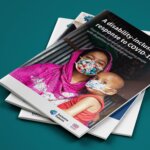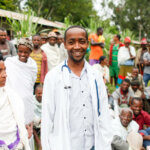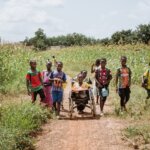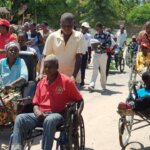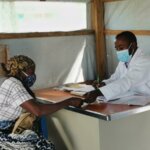- Disability Rights
- Economic Empowerment
- Latest
Research reveals pre-existing inequalities were increased by the pandemic. The impact of the crisis on people with disabilities shows: decision makers must do better.
Light for the World’s work to reach people with disabilities during the COVID-19 pandemic has contributed to new reports from the Inclusive Futures programme. The findings of these reports highlight the stark exclusion experienced by people with disabilities during the crisis.
Lorraine Wapling, Inclusive Futures technical lead, says, “We knew this situation was bad for people with disabilities – but when we looked into the detail, it was even worse than we imagined.”
“I was completely in shock. Despite all the hard work by organisations of persons with disabilities, the right to be included in times of crisis still seems far from being achieved.”
The research must be read as a wake-up call to ensure accessibility and inclusion everywhere, from the start.
“Last year was a steep learning curve for everyone. With Inclusive Futures, we adapted our programmes in order to react to the most pressing needs of children and adults with disabilities in the communities we serve,” says Daniel Davies, programme coordinator at Light for the World. “We hope that the lessons we learnt will help to inform future responses where people with disabilities are just as much at risk.”
About the work of Inclusive Futures
The reports were compiled as part of Inclusive Futures, a flagship disability inclusion programme that is funded by UK aid. Inclusive Futures brings together global leaders and specialists from 16 organisations to improve access to work, education and healthcare, and tackle the stigma and discrimination faced by people with disabilities.
As a member of the Inclusive Futures consortium, Light for the World leads two projects: In Kenya we support people with disabilities to establish and maintain micro-enterprises, and in Nepal we make the coffee value chain more accessible to people with disabilities. We also support two additional projects in Bangladesh and Nepal, working with BRAC and Humanity & Inclusion to make programmes in vocational training and sexual health more inclusive.
During the COVID-19 crisis, our work with Inclusive Futures provided 60,000 people with immediate relief and longer-term support. Light for the World’s crisis response included support to micro-entrepreneurs with disabilities and the set-up of a support call centre in Kenya as well as cash transfers to vulnerable households in Bangladesh.
To read the research and learnings, visit www.inclusivefutures.org/learning-from-covid-19.
